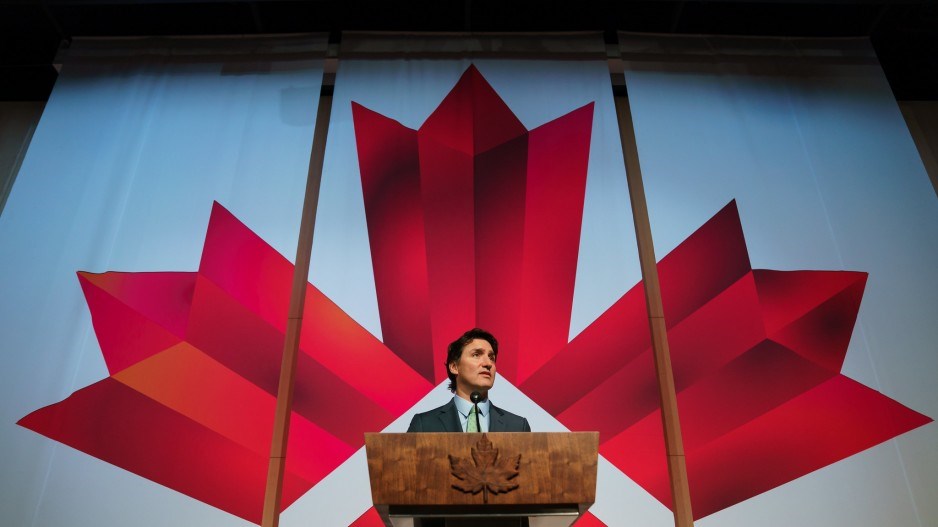Industry experts are still hoping for some housing-related budget surprises, despite federal spending details being pretty much an open book ahead of this week’s unveiling.
“We don't often know what's going to be in the budget until it's released, but it seems that approach has changed,” said Jill Atkey, CEO of the BC Non-Profit Housing Association (BCNPHA).
“When a budget gets released all in one day, with billions and billions of dollars in spending, each of those initiatives doesn't really get the attention that it potentially deserves. So, it's nice to have a bit more of a focus on housing in the lead-up.”
The feds unveil the next budget Tuesday (April 16), and Canadians can expect the following housing measures to be in the government’s spending plan:
- A $6-billion infrastructure fund, with $1 billion allocated to emergency infrastructure needs
- A $15-billion top-up for the Apartment Construction Loan program and the launch of a Canada Builds program
- A new $1.5 billion Canada Rental Protection Fund
- Funding totalling $20 million for Statistics Canada and CMHC to modernize housing data collection
- Funding totalling $11.6 million to reinvent Canada’s existing standardized housing design catalogues from the 1940s
- A new $15-million Tenant Protection Fund
- A new $50-million Homebuilding Technology and Innovation Fund
Some of these measures closely resemble housing initiatives that started in B.C.
“Our focus is not to try to get a pat on the back from other provinces but to try to get housing built for people in our community,” B.C. Housing Minister Ravi Kahlon said.
“We have a lot more work to do but if it can help other communities across the country, that's a good thing.”
Kahlon said he was pleased to see extensions to the loan terms under the Apartment Construction Loan program, in addition to fast-tracking the application process for builders who have proven experience using the program.
While Kahlon said he is “very pleased” with what he has heard will be included in the upcoming budget, some of the spending falls short of what is needed.
“What I would like to see from them is a clear commitment for the infrastructure funding, that that money will go to provinces that commit to doing the things they laid out. [Five billion dollars] in the coming years won't solve the infrastructure challenges that we have just in B.C., let alone the country,” he said.
He also said that while the Canada Rental Protection Fund is positive, “it's still not a large enough amount of money, but it's still substantial.”
Other missing pieces include a lack of focus on housing on- and off-reserve for Indigenous communities and investments in skilled trades and training, he said.
Budget 2024 proposes additional funding that “will be over and above the $5 billion allocated to Indigenous infrastructure in 2024-2025,” according to the Government of Canada.
In addition, the budget will propose an investment of $10 million in the Skilled Trades Awareness and Readiness program, and an additional $90 million for the Apprenticeship Service program.
For Atkey, the missing piece is dedicated funding for medium and low-income housing.
“At some point … we will need to get serious about investing in truly affordable housing for low and moderate-income people. It's what the national housing strategy’s objectives are and most of the programs in the housing strategy are not designed to meet that objective. That's where we're really falling behind,” she said.
Coquitlam city Coun. Trish Mandewo said that in addition to the housing measures in the budget, there also needs to be spending to address mental health and addictions.
“That is front and centre for local governments, we are on the ground, we are seeing the impacts and we have to respond,” said Mandewo, who also serves as president of the Union of BC Municipalities.
She added that spending attached to the Canada Rental Protection Fund and infrastructure fund is not enough given the scope of the problem.
In addition, Mandewo said that changes need to be made to the conditions attached to the infrastructure fund, which require cities with more than 300,000 people to freeze development cost charges.
“What that will do is make the infrastructure deficit far worse for those communities and would therefore result in costs being transferred onto renters and homeowners,” she said.
“This actually seems counterproductive, but there's still time for the government to rethink this aspect of the program and I surely hope that they will reconsider.”


